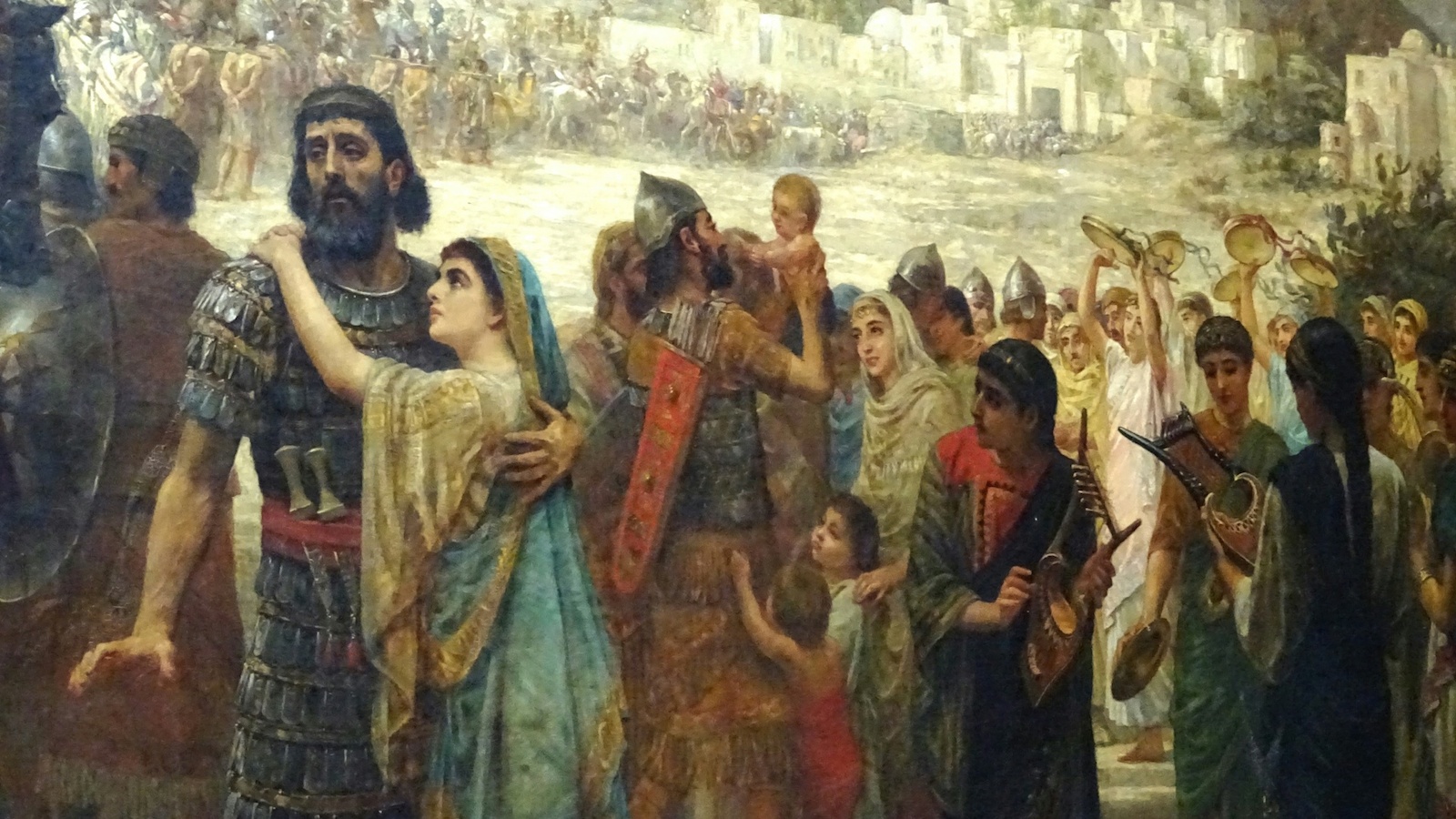Commentary on Parashat Chukat, Numbers 19:1-22:1
The Haftarah selection is from Judges 11:1-33.
Haftarat Chukat tells the story of a man named Jephthah. His father was Gilead, a mighty warrior. His mother was a prostitute–and, for that reason, his half-brothers prevented him from claiming his inheritance, and expelled him from their home. Jepthah flees, ending up in the land of Tob, where he falls in with some outlaws.
Years later, Gilead’s tribe is attacked by Ammonites. Fearing for their lives, the men of the tribe who had once shunned him approach Jephthah and request that he lead them in battle.
At first, Jephthah scoffs at them–“You hated me; you drove me out of my father’s house; now, when you’re in trouble, why do you come to me?” (11:7). But the elders plead with him, and so he consents.
Jephthah sends a delegation to the king of Ammon to negotiate. But the king accuses Israel of stealing his land when they left Egypt. Jephthah then sends more messengers, and they insist that the land in question was captured from Sihon king of the Amorites in battle, with God’s assistance. They explain that their claim to the land is theological: “Do you not hold what Chemosh, your god, gives you to possess? So we will hold on to everything that the Lord our God has given us to possess” (11:23).
With your help, My Jewish Learning can provide endless opportunities for learning, connection and discovery.
In explaining their claim to the land, Jephthah’s messengers relate some Israelite history taken directly from this week’s Torah portion. The messengers outline how the people tried to cross through Edom to the land of Israel, but Edom refused to grant them entry. When they tried the land of Moab, they had the same result. The next kingdom they tried was Heshbon. However, fearful that the Israelites wouldn’t merely pass through but would instead attempt to conquer the kingdom, Heshbon attacked the Israelites. Ultimately, with God’s help, the Israelites won.
In addition to their theological claim, Jephthah’s men also presents a logical argument: “Three hundred years Israel has been settled,” he remarks. “Why didn’t you try to take back [the land] all that time?” (11:26).
But the king of Ammon does not retreat. So Jephthah prepares for battle. He makes a vow: “If you deliver the children of Ammon into my hand, then whatever comes first through the doors of my house to meet me, when I return in peace from the battle, shall be the Eternal’s, and I will offer it up for a burnt-offering” (11:30-31).
The battle commences, and Jephthah wins. Here, the haftarah concludes. However, this chapter of Judges includes eight additional verses, which tell about Jephthah’s return from the war, and of the horrible fulfillment of his vow–for, when Jephthah returned home, the first “thing” to greet him was his daughter.
Haftarah
Pronounced: hahf-TOErah or hahf-TOE-ruh, Origin: Hebrew, a selection from one of the biblical books of the Prophets that is read in synagogue immediately following the Torah reading.
Torah
Pronunced: TORE-uh, Origin: Hebrew, the Five Books of Moses.



